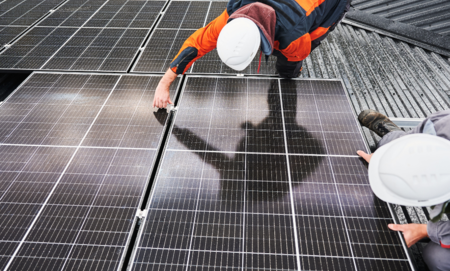The solar panel industry eagerly awaits detailed information on the implementation of the new building directive, which mandates photovoltaic system installations on new residential buildings starting in 2030. Adopted by the European Parliament in March 2024, the directive will require significant investments while opening up numerous opportunities for the renewable energy market.
Under the directive, member states must introduce photovoltaic installations on various building types within specific deadlines. In Poland, despite a slowdown in the growth of micro-photovoltaic installations, the industry is preparing for these changes. Concerns about increasing dependence on component imports from China persist, though local supply chains may also benefit from the evolving situation.
Successful implementation of the directive’s provisions will require financial support and building modernization programs. Although the dominance of Chinese manufacturers presents a challenge, the European Commission has recommended measures to strengthen domestic supply chains, potentially benefiting Polish companies.
The new regulations could accelerate the energy transition and create opportunities for the photovoltaic market’s development. Balancing the growing imports with the growth of local production will remain a key challenge.
The revision of the EPBD directive, adopted by the European Parliament on March 13, 2024, serves as a cornerstone for the future of the solar industry in Europe. It represents both an opportunity and a challenge, requiring cooperation, innovation, and thorough preparation.
Source: Parkiet

